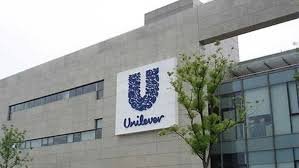
Unilever Nigeria Plc has posted a pre-tax profit of N6.3 billion in the first half of 2024, marking a 7% year-on-year growth from the N5.9 billion posted in H1 2023.
According to the company’s unaudited interim financial statement for H1 2024, it posted a revenue of N63.9 billion, which is a 41% year-on-year growth from the N45.4 billion revenue posted in the corresponding period last year.
Unilever Nigeria also posted a N4.4 billion profit for the period, representing a 61% YoY growth from the N2.8 billion posted in H1 2023.
Recall that in H1 2023, the company incurred a loss of about N1.33 billion from the discontinuation of some of its operations.
Key Highlights H1 2024 vs H1 2023
- Revenue: N63.9 billion, +41% YoY
- Cost of sales: N37.7 billion, +17% YoY
- Gross profit: N26.2 billion, +100% YoY
- Marketing and administrative expenses: N17 billion, +163% YoY
- Operating profit/(loss): N3.5 billion, +8% YoY
- Net finance income: N2.8 billion, +7% YoY
- Profit before taxation: N6.3 billion, +7% YoY
- Profit for the period: N4.4 billion, +61% YoY
- Total assets: N127.9 billion, +10% YoY
Commentary: During the half year, the company recorded most of its revenue, N37.1 billion, from its food products, namely Lipton Yellow Label Tea, Knorr and Royco cubes.
Unilever Nigeria recorded N22.2 billion from its personal care products, and it recorded N4.6 billion from its beauty and wellbeing products. Its personal care products include Close-Up toothpaste, Pepsodent toothpaste, LUX beauty soap, Lifebuoy soap, Rexona, Vaseline lotion and Vaseline Petroleum Jelly.
During the period under review, Unilever Nigeria exported goods worth about N2 billion.
FX revaluation effects
In the 2024 half year, Unilever Nigeria posted a revaluation gain of N2.5 billion on its imported goods, reflecting a contrast from H1 2023, when it posted a revaluation loss of N14.4 billion.
However, the group’s marketing and administrative expenses appreciated by 163% YoY to hit N17 billion in H1 2024 from N6.5 billion as of H1 2023. The rise in marketing expenses can be attributed to a 249% surge in overhead costs, primarily driven by the devaluation of the naira affecting foreign-denominated balances as well as inflation.
Unilever Nigeria accrued N3.29 billion as income from the exchange difference on bank balances. Also, the company’s deposit for imports rose by 297% year-on-year to N5.97 billion, due to the devaluation of the Naira.
Further commentary
Unilever Nigeria’s trade payables increased to N23.6 billion during the period, marking a 96% YoY increase from N12 billion as of H1 2023. The company’s liabilities linked to its trade finance facility have declined by 76% YoY to N485 million, from N2 billion as of H1 2023.
The decline in Unilever’s trade finance liabilities is linked to the company’s overall decline in its FX-exposed liabilities.
In H1 2024, Unilever Nigeria sold goods worth N1.96 billion to Unilever Cote D’Ivoire, as its receivables from the company increased to N7.2 billion, from N4.38 billion as of FYE 2023.






